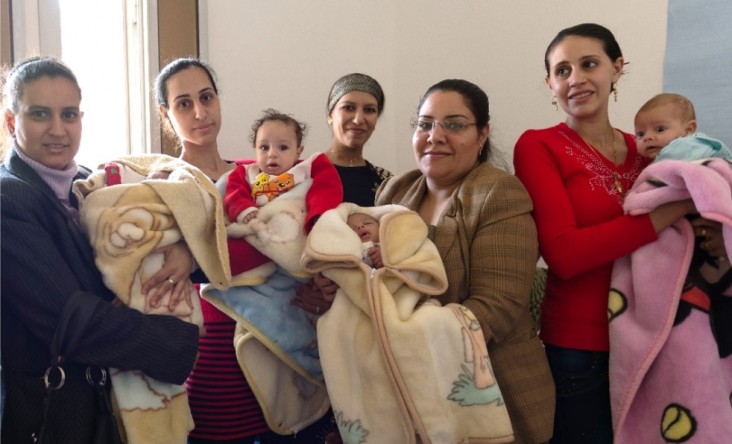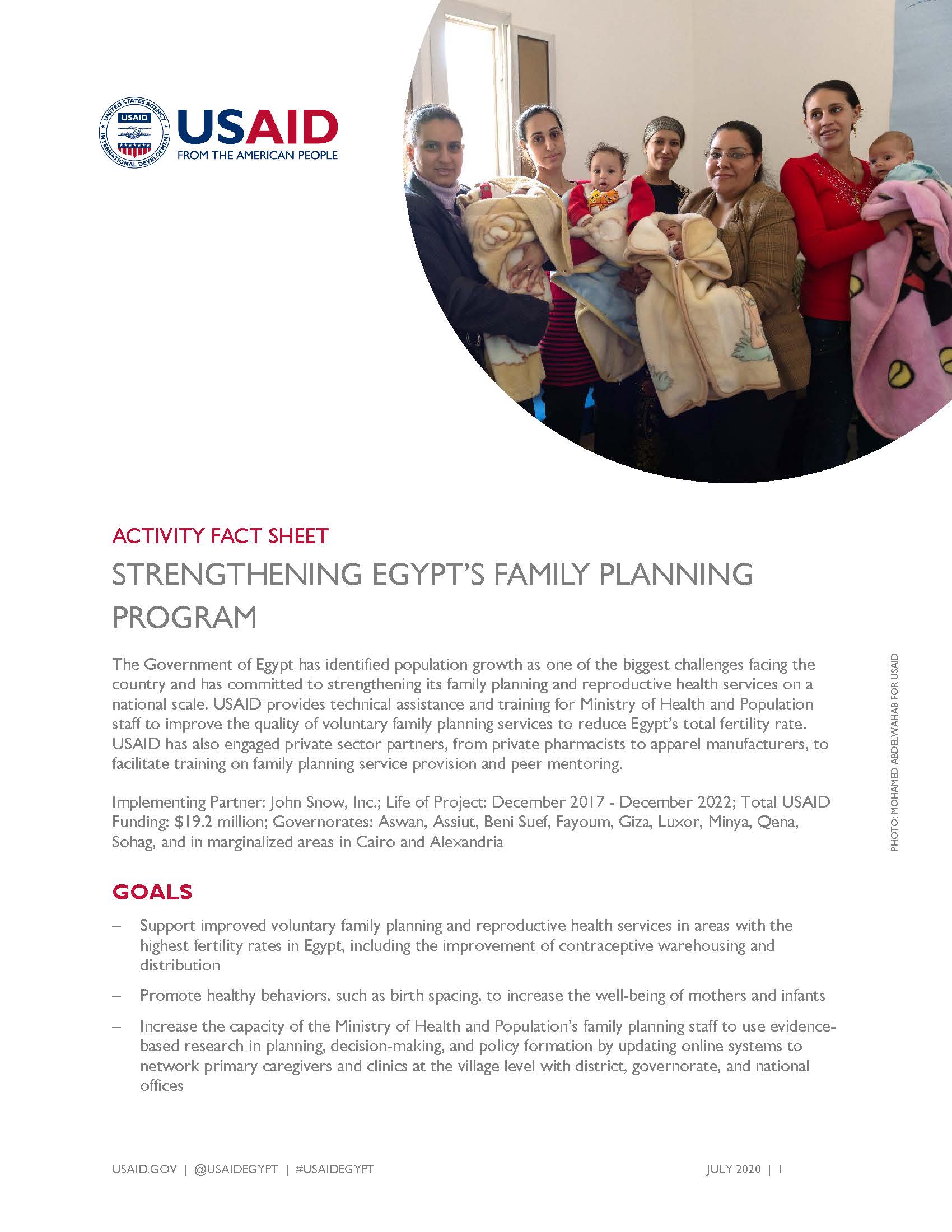Speeches Shim

The Government of Egypt has identified population growth as one of the biggest challenges facing the country and has committed to strengthening its family planning and reproductive health services on a national scale. USAID provides technical assistance and training for Ministry of Health and Population staff to improve the quality of voluntary family planning services to reduce Egypt’s total fertility rate. USAID has also engaged private sector partners, from private pharmacists to apparel manufacturers, to facilitate training on family planning service provision and peer mentoring.
Implementing Partner: John Snow, Inc.; Life of Project: December 2017 - December 2022; Total USAID Funding: $19.2 million; Governorates: Aswan, Assiut, Beni Suef, Fayoum, Giza, Luxor, Minya, Qena, Sohag, and in marginalized areas in Cairo and Alexandria
GOALS
- Support improved voluntary family planning and reproductive health services in areas with the highest fertility rates in Egypt, including the improvement of contraceptive warehousing and distribution
- Promote healthy behaviors, such as birth spacing, to increase the well-being of mothers and infants
- Increase the capacity of the Ministry of Health and Population’s family planning staff to use evidence-based research in planning, decision-making, and policy formation by updating online systems to network primary caregivers and clinics at the village level with district, governorate, and national offices
- Respond to COVID-19 pandemic by increasing the awareness of service providers towards infection prevention procedures and providing general information about the pandemic
- Create online learning modules with information on COVID-19 for the national family planning platform
RESULTS
- Conducted an assessment and proposed recommendations for the Ministry of Health and Population’s current contraceptive commodity security system. Recommendations included increasing the availability of warehouse inventory data, automating information on commodity movement, improving warehouse storage conditions, and increasing warehouse staff capacity
- Trained more than 150 of the 300 Information, Education, and Communication Officers from the Ministry of Health and Population in behavior change methodologies; participants are applying this expertise in engagements with the Egyptian public
- Teamed with a garment manufacturer to train and raise the awareness of more than 200 female factory workers on voluntary family planning options to make decisions appropriate to their individual circumstances
- Trained 133 private-practice physicians and 125 private pharmacists in Luxor and Aswan on updated family planning counseling and service provision topics
- Trained 560 primary caregivers (including doctors, nurse supervisors, and pharmacists) as family planning master trainers; these master trainers will reach 11,000 of their peers with training in family planning issues to better serve 29 million residents of Upper Egypt and 140,000 people living in impoverished areas of Greater Cairo and Alexandria



Comment
Make a general inquiry or suggest an improvement.